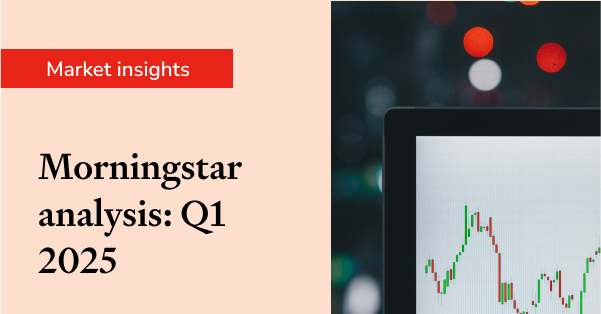The ten year gap in financial services technology
In my estimation, technology in traditional financial services lag other industries by about a decade. Having trouble remembering what your online life was like in 2006? Here's a benchmark: Facebook, Twitter, and the iPhone are each more than 10 years old.
Sure, the word fintech has been all the rage the past couple of years, but it's not a good sign when the word "tech" is wrenched into a moniker to explain what the companies involved actually do. We don't refer to Uber as "taxitech," just like we don't think of Airbnb as "hoteltech." It just works. It's how we live.
I'm not sure who coined the term fintech, but I can confidently say it's been popularised by incumbents who look quizzically at tech companies (including Sharesight) as a paddock for propeller-heads. Recently one banker asked me how things were going at the "$2 shop".

In reality, we in the fintech industry are busy testing ideas and innovative technologies that make everyday life better for those who depend on the dusty realm of financial services. Some of us are outsiders set on challenging the banks head on, while others come from the industry and seek to improve it.
Every day, clients of financial advisers, accountants, and fund managers are finding ways to access their data and take matters into their own hands — for better or worse."
A recent report by PwC highlighted just how much catching up financial services companies have to do on the tech front. According to their survey, 69% of high-net-worth individuals use mobile/online banking, with 40% using self-directed and execution-only investment services, like a low cost online broker. Of those with more than $10M, only 22% are "very satisfied" with their existing service.
That means wealthy people are dissatisfied and their assets are portable. That must terrify those reliant on vertical integration.
So this bodes ill for professionals on the wrong side of technology. Every day, clients of financial advisers, accountants, and fund managers are finding ways to access their data and take matters into their own hands — for better or worse. Sure there's dissatisfaction with the banking industry, but technology (particularly mobile) is allowing us to do this in all other facets of life. There's no stopping this trend.
The truth is, the most successful fintech companies are the ones redefining how people are organising themselves around financial products. And the financial professionals who understand this have a head start."
This is not a surprise to us. While we see the best financial professionals seeking services like Sharesight and our family of connected products, we also talk to those that just don't get it.
Some fintech companies are doing some really cool stuff with technology — blockchain, or the way our developers have applied new JavaScript frameworks to Sharesight, for example. But the truth is, the most successful fintech companies are the ones redefining how people are organising themselves around financial products. And the financial professionals who understand this have a head start.
We've recently started profiling our financial adviser clients and one common thread is none rely on an out-of-the-box tech solution. Instead they let their clients dictate which apps and services they use - not just for product selection, but access too.
The banks who persist building or dictating the tech platforms their wealth management teams use may not find their client relationships totally severed. Instead, their assets under management won't grow, and they won't know who else is giving their clients advice.
FURTHER READING

You can time the market – and ETFs are the way to do it
Marcus Today founder and director Marcus Padley discusses timing the market, and how investors can do this using exchange-traded funds (ETFs).

Morningstar analyses Australian investors’ top trades: Q1 2025
Morningstar reviews the top 20 trades by Australian Sharesight users in Q1 2025, and reveals where their analysts see potential opportunities.

Sharesight product updates – April 2025
This month's focus was on improving cash account syncing, revamping the future income report and enabling Apple login functionality.